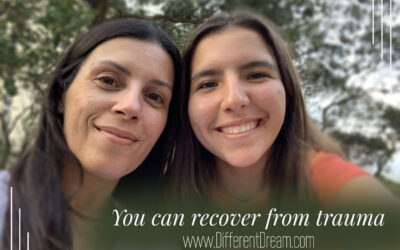10 Truths Learned about Trauma

Photo Credit: smarttiw at www.freedigitalphotos.net
Trauma impacts lives. Whatever time of life a person is traumatized—as an infant, child, teen, or adult—life is never the same. A post at Sojourners by Catherine Woodiwiss explains ten ways trauma can change a life. What she has to say speaks volumes to caregiving parents who are dealing with grief.
10 Truths about Trauma
- Trauma permanently changes us. There is no such thing as getting over it. But it’s not wholly negative. Healing from trauma leads to new strength and joy.
- Presence is always better than distance. To suffer through trauma alone is unbearable. If someone says they need space, respect their wish. Otherwise be present.
- Healing is cyclical, not linear. Recovery takes a long, long time. Expect to cycle through stages of grief often.
- To survive trauma a person needs friends who are “firefighters” and “builders.” Surviving trauma requires at least two types of people on a crisis team: friends who can drop everything and jump into the fray and others who are calm and give steady care.
- Grieving is social, and so is healing. We are wired for contact. Only through relationship that we can be most fully healed. Seeking out one another requires courage. Start by giving shelter to others.
- Do not offer platitudes or comparisons. We offer assurances when we don’t know what else to say. But they often sting as clueless, careless, or just plain false. What we need are friends who sit beside us and let it be terrible.
- Allow those suffering to tell their own stories. Give a person struggling with trauma dignity to discover and own it.
- Love shows up in unexpected ways. Ultimately every gesture of love, regardless of the sender, becomes a step along the way to healing. It may not look like what was expected, but surprise love will be the sweetest.
- Whatever doesn’t kill you …almost kills you. Some days you feel like a quivering, cowardly shell. This is a fight to be won over and over again.
- … Doesn’t kill you. You learn resilience to sustain you in other crises. It may make you stronger…or not.
Woodiwiss writes with conviction and beauty. For more of her insights, read the entire post at A New Normal: Ten Things I’ve Learned About Trauma.
How Has Trauma Changed You?
Have you been changed by trauma and the grief that accompanies it? What would you add to Catherine’s list? Share your insights in the comment box.
Do you like what you see at DifferentDream.com? You can receive more great content by subscribing to the quarterly Different Dream newsletter and signing up for the daily RSS feed delivered to your email inbox. You can sign up for the first in the pop-up box and the second at the bottom of this page.
By Jolene
Jolene Philo is the author of the Different Dream series for parents of kids with special needs. She speaks at parenting and special needs conferences around the country. She’s also the creator and host of the Different Dream website. Sharing Love Abundantly With Special Needs Families: The 5 Love Languages® for Parents Raising Children with Disabilities, which she co-authored with Dr. Gary Chapman, was released in August of 2019 and is available at local bookstores, their bookstore website, and at Amazon. The first book in her cozy mystery series, See Jane Run!, features people with disabilities and will be released in June of 2022.
3 Comments
Submit a Comment
Subscribe for Updates from Jolene
Related Posts
Trauma vs. Trust
For special needs parents, figuring out trauma vs. trust becomes the difference between enduring life and enjoying it.
Flying Near the Sun as a Special Needs Parent
Guest blogger Lisa Pelissier explains how she copes when she is flying near the sun as a special needs parent.
How Can I Make You Feel Safe?
Whether your loved one suffers from trauma or dementia, the best question a caregiver can ask is, “How can I make you feel safe?”






That is so true, Clara. We have to listen to the stories of others and always share ours. The time and place may come to let someone know you understand because of similar circumstances, but never with a game of “my trauma’s worse than yours.”
I appreciate your point about letting others tell their story. So often we want to interrupt and play ‘my trauma’s worst than yours’ but that’s not what it’s about.
These are very wise words! Most people cannot understand why those who suffer a trauma can’t just get over it! Thanks for sharing these tips at Friendship Friday!